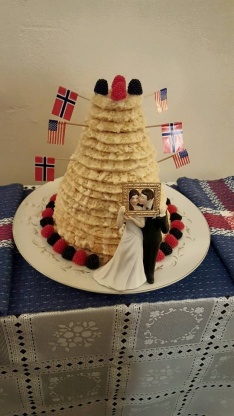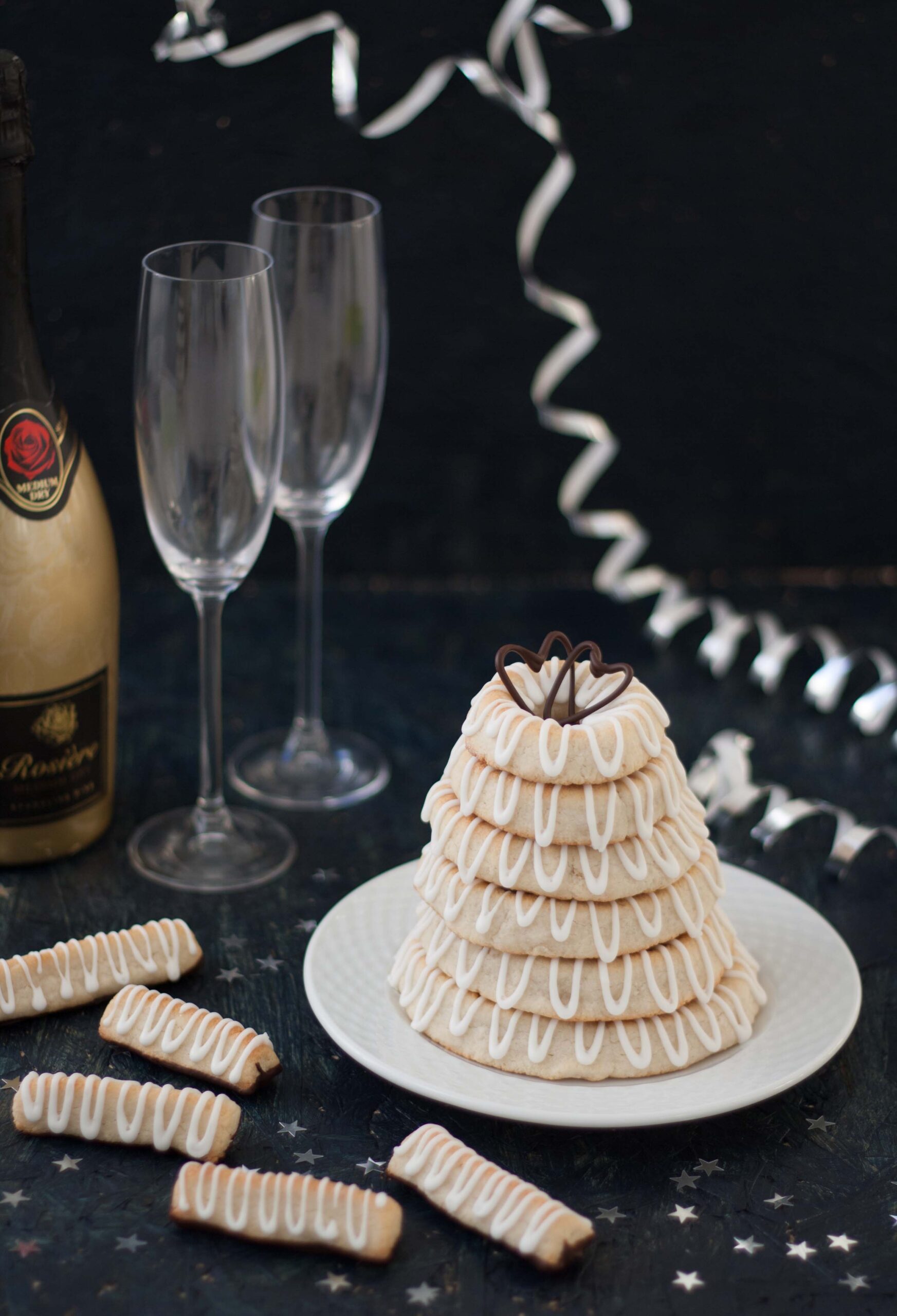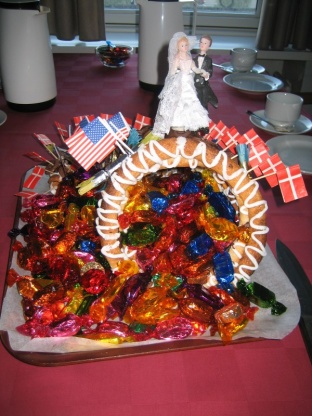Kransekage
kransekake, tårnkake, tarnkake
Kransekage or kransekake (Norwegian) is a traditional Danish and Norwegian confection, often eaten on special occasions in Scandinavia. In English, the name means 'wreath cake'. In Norway it is alternatively referred to as tårnkake (English: 'tower cake') and often prepared for Constitution Day celebrations, Christmas, weddings, and baptisms. In Denmark it is typically eaten as part of New Year celebrations, while a variation of the cake, overflødighedshorn, is traditionally served at weddings and baptisms. The origin of the kransekage can be traced to the 18th century, where it was first created by a baker in Copenhagen.[citation needed]
Source: Wikipedia
Recipes

Kransekage - Danish Almond Cake — Sweet • Sour • Savory
Kransekage is a traditional cake served at New Year's Eve at midnight with champagne, at weddings (back in the days) or at special occasions. I like kransekage with a sweet champagne, because the sweetness of the cake makes the champagne very sour...
:max_bytes(150000):strip_icc()/kransekake-020-vert-d113085_vert-84d14c78f4994210a5fb7da79ef62d79.jpg)
:max_bytes(150000):strip_icc()/SES-kransekake-norwegian-ring-cake-2952682-0155a0512579433494aa2d64cd798635.jpg)

:max_bytes(150000):strip_icc()/Kransekake_104-2000-eb15f7e8b5a9438b95a07599006f4d14.jpg)









